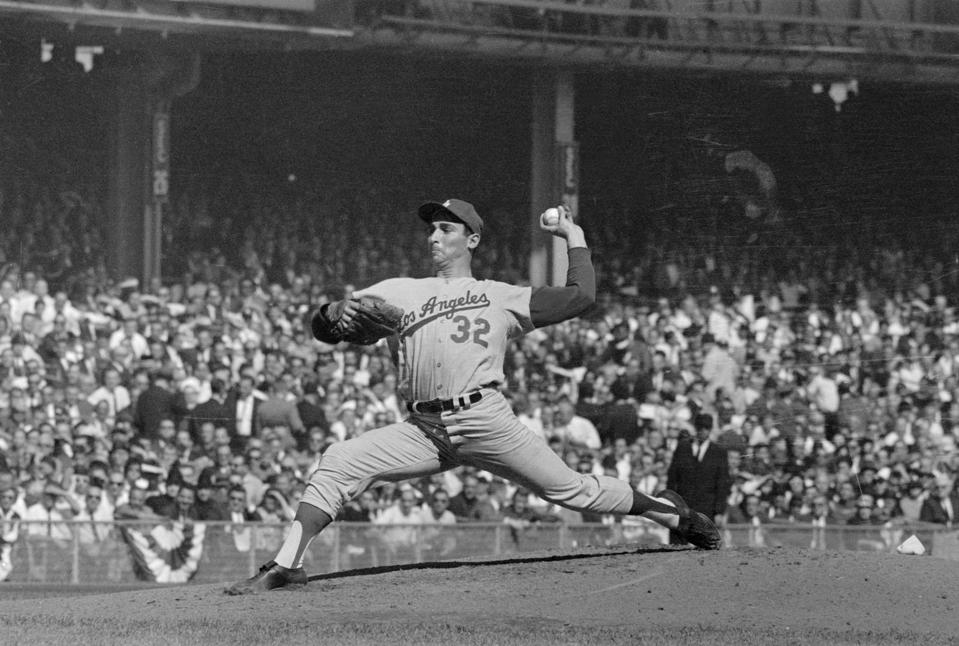On a wall in my office hangs a picture of Sandy Koufax pitching for the Los Angeles Dodgers.
If you were born after 1966, the year Koufax retired at 31 years old due to unbearable arthritis in his pitching elbow, you’ve never seen a pitching master like him. If you’re older, you’ve seen great one, but never his equal. He didn’t have the longest career or most wins, etc. He was simply the greatest ever when he was in his prime.
Transition to Greatness
At the beginning of his career, Koufax was less than a mediocre pitcher. In fact, during his first six years he lost more games than he won, couldn’t control his wildness, and put up a horrible stat sheet. Under today’s conditions you wouldn’t have kept him around.
Then something happened. He became not just great, but for his last six years and especially the last four, he was the greatest pitcher who ever took the mound. His stats are unbelievable, unimaginable, unapproachable.
Becoming great is a decision, not a happenstance.
So, what happened? Koufax explained long after retiring, “I became a good pitcher when I stopped trying to make hitters miss the ball and started making them try to hit it.” [Note: Koufax called himself “good,” not “great” in what has to be the gross understatement of the century!]
In other words, he started paying more attention to what he could do than he did to what the other guy could do. Granted, he was an enormously gifted athlete, but until he focused on his strengths and on developing those strengths, he languished in unreached potential.
The rest is history. He became “the man with the golden arm” and, for the editorial staff of Sports Illustrated, their favorite athlete of the 20th century, he who wielded “the left arm of God.”
Those are some pretty heady words about a guy who – if not for a key mental shift which he made as a result of his own introspection – would have disappeared into oblivion.
What Koufax and the SI editors were saying is strikingly applicable to business and to careers today. As conditions turned catastrophic when Covid hit, and as they have rebounded spectacularly since, individuals and corporations who concentrated on expanding and improving their own cache of skills, broadening their experience, and deepening their backgrounds inevitably became more competitive than others – not by paying attention to the other guy, but by focusing on themselves.
This is excellent advice today. Being competitive is about you, not the other guy. It’s about continuously evaluating market conditions and demands, and your readiness to meet them. It’s about being honest about your strengths and weaknesses. It’s about diligently doing something about them.
Focus on strengths.
That’s exactly what Koufax did. In his case, his strength was his physical attributes and talent. His weakness was his attitude. In the first half of his career, he played to his weakness and the other guys’ strengths; in his great second half, he played to – and developed – his strengths, which created the other guys’ weaknesses. It was no contest from there on in.
Achievement depends as much on resolve as it does on talent and skills, which means that no matter your level of skills, you can do something about them immediately. Which brings up another piece of wisdom from Thomas J. Watson who, joined a small company called Computing Tabulating Recording Corporation in 1914 and ultimately renamed and reformed it into International Business Machines – IBM – Big Blue. Watson said, “If you want to achieve excellence, you can get there today. As of this second, quit doing less-than-excellent work.” Notice that Koufax and Watson talked about what they did, not what others were doing. So if you’ll permit me to throw in my own little nugget, here it is. Quit trying to be better than others. Just try to continue being better than you’ve been.
Here’s why Sandy Koufax’s picture has hung in every office of mine for 40-something years. Every day, I look at that picture and take a minute to remind myself of three things. The first is what he said. The second is to challenge myself: if I can do my job just half as well as he did his, I’ll be awfully good at what I do. And the third is how much I have to do to continue being that good – not better than anyone else, just better than myself.
And now I’ll tell you why I posted this article now. Today – December 30, 2023 – is Sandy Koufax’s 88th birthday.

